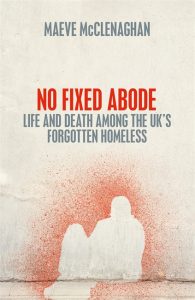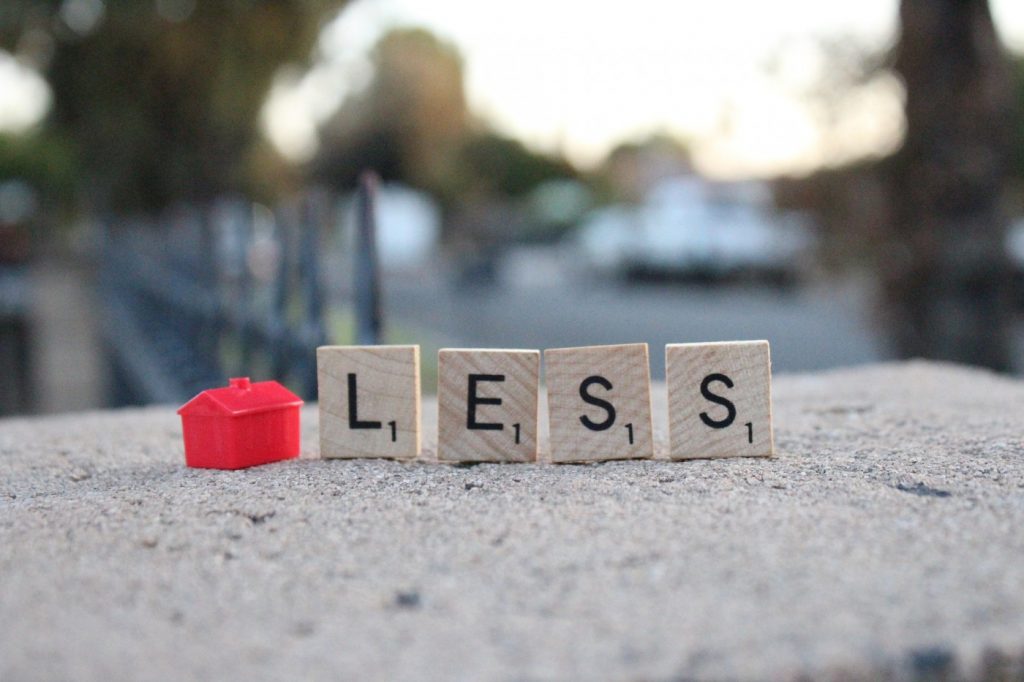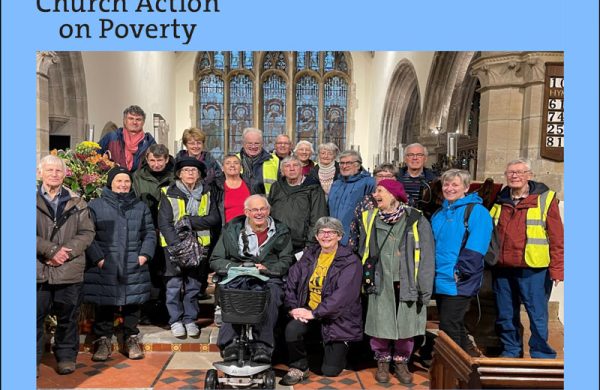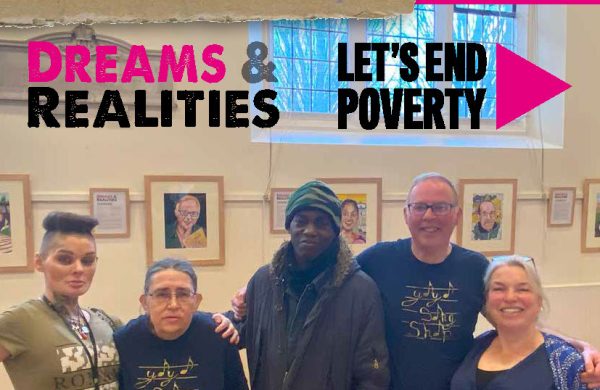Book review: No Fixed Abode
 No Fixed Abode by Maeve McClenaghan is published this month. It tells the stories of many people who have been pushed into homelessness and who have died or lost friends – and it challenges us all to make this a turning point.
No Fixed Abode by Maeve McClenaghan is published this month. It tells the stories of many people who have been pushed into homelessness and who have died or lost friends – and it challenges us all to make this a turning point.

Tony sat down in the garden of his former home in Lowestoft, and froze to death. He was 57.
Fiona was found under a bridge in Leeds, where she had been sleeping. She was 46.
Alan was 81 when he died in hospital, having been sleeping rough outside a shopping centre in Norwich.
Hamid was 55 when he died in a hotel room, having been forced by the cold out of the car where he had been living. He had been academically brilliant as a teenager, and had applied in the late 1990s to be a research assistant to Professor Stephen Hawking.
Cardon was 74 when he died in a tent, where he lay undiscovered for some time.
Jayne died in a doorway in Stafford, aged 53.
We could continue this way, line by line, person by person, year after year. All over the country, all too often, people who have become homeless die prematurely and avoidably.
Often there are individual moments where opportunities were missed. Police did not respond to the first call about Tony, for instance; a health appointment Jayne requested was accidentally not booked. Yet there are always bigger structural issues and attitudes at play, such as poverty; the insufficient support for people moving into adulthood after traumatic childhoods; the national housing shortage; a dehumanising public rhetoric around homelessness; severe cuts to vital services through the ‘austerity’ programme; and a reluctance by councils to carry out Safeguarding Adult Reviews after the death of a homeless person.
Until recently, the full scale of the crisis was not known. How many people died while homeless in 2010? How did that compare to two years, 10 years, 20 years earlier? What were the recurring factors, causes or lessons that could be learned? Nobody knew – until, in December 2018, the Office for National Statistics published the first official data showing how many people were dying homeless. They recorded a figure of 597 in England and Wales for 2017 and, analysing historical data, calculated that figure had likely risen by 24% in five years.
The news made headlines all around the country. For the first time, the scale of the crisis was clear and No Fixed Abode is the story behind the story.
Author Maeve McClenaghan, a journalist at the Bureau of Investigative Journalism, began exploring homelessness when it was visibly rising. She spoke to relatives of people who had died but was surprised to find nobody recorded the total figures, so the Bureau and many journalists around the country began sharing information from their own communities.
Ultimately, their data helped the ONS find a viable methodology to record annual figures.
No Fixed Abode is a vital work. It charts the journalistic tenacity that helped change the system and tells the stories of some of those who have died. It also shines light on the compassionate work of countless small community projects, and brings powerful first-person insight from people such as David.
David was about to take his own life on a park bench, when he was spotted and stopped by a park officer, who listened, helped, and in doing so changed everything. David went on to become an artist, and in autumn 2018, when the Bureau’s initial figures were revealed, he spoke on Channel 4 News.
“We have this fear to talk to homeless people, we seem to dehumanise them.”David Tovey, a campaigner who used to be homeless, and Crisis Policy Director Matthew Downie respond to new figures which suggest that at least 449 homeless people have died in the UK in the last year. pic.twitter.com/6vkl3jqIAj— Channel 4 News (@Channel4News) October 9, 2018
David Tovey, a campaigner who used to be homeless, and Crisis Policy Director Matthew Downie respond to new figures which suggest that at least 449 homeless people have died in the UK in the last year. pic.twitter.com/6vkl3jqIAj
— Channel 4 News (@Channel4News) October 9, 2018
No Fixed Abode was researched and written before the coronavirus pandemic, but the manner in which it exacerbated inequalities is addressed in the preface.
People who are homeless have circumstances that make them more vulnerable to the pandemic, it notes. Homeless people already had higher mortality rates and were far more likely to have respiratory problems, mental health issues or substance abuse issues.
And yet…
The pandemic also changed society’s ideas of what is possible. By Government order, thousands of people were accommodated without question, as services focused on one non-negotiable end goal. McClenaghan writes: “As pleased as I was to see it happen, I couldn’t help but wonder: should it really have taken a global pandemic to get us here?”
Can such a can-do attitude last? Can we continue to achieve the unthinkable, by focusing on the end goal and not getting bogged down in process?
The pandemic will sweep millions into or towards poverty, but it has also brought communities together, challenged what we as a society prioritise, and enabled us to see clearly how many lifelines and safety rails have been removed over the years.
McClenaghan writes: “For many, the effect of years of austerity policies and tightened belts was invisible… But this pandemic has taught us that the invisible catches up with us and, when it does, we can either bury our heads in the sand or face up to where we have come to…. I hope the frustrations and injustices laid out in this book are a thing of the past. But unless we stare them down, understand how they happened and why, we will never learn how to build back better.”
- No Fixed Abode by Maeve McClenaghan is published by Pan Macmillan on September 17, and is available to order here.




Comments (02)
Comments are closed.